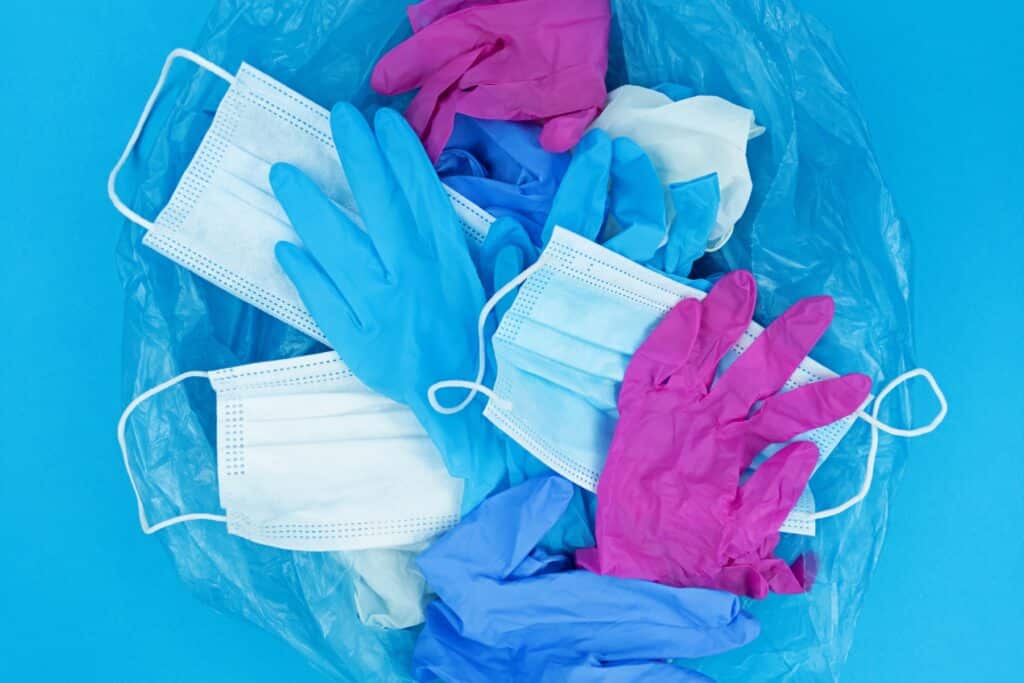COVID medical waste endangers health

Global Concerns over Medical Waste
The global COVID-19 pandemic, as we all know, poses a massive threat to human health. Still, the virus has also given rise to significant environmental concerns over medical waste. With healthcare systems in high demand due to hospitalizations, the demand for medical equipment was catastrophically high. Medical waste was an absolute nightmare, with all the medical equipment used at a high rate.
Challenges in Waste Disposal and Treatment
Medical waste, in general, has always been tough to deal with. A recent report by the World Health Organization stated that the problem with waste disposal was global but extreme in poorer countries. In these low-budget countries, they can’t afford to have these massive hauls of waste removed, so they end up burning it in pits, which results in intense pollution concerns. These developing countries have three main concerns: Inefficient treatment procedures, limited capacity healthcare facilities, and ineffective waste disposal procedures are causing problems.
Collaborative Efforts and Best Practices
Improper waste disposal treatment could even further spread the COVID-19 virus. Another significant factor in this issue is that, in a perfect world, most medical waste will be sterile and then recycled. But for this process to occur, the refuse must split up into different components, which is not easy, and most developing countries do not have that capability.
All these facts call for a massive need to determine the best disposal techniques for these less fortunate developing countries. With most countries again burning waste, international support and collaborative efforts are crucial to assisting these countries in implementing effective waste management strategies while minimizing COVID-associated risks.
Collaborative Solutions for Waste Management
The United States helped immensely by collaborating with partner countries to address the issues. Furthermore, they provided technical assistance, equipment, and funding to support safe and sustainable waste management practices during the hard times. Another country that played a significant role is Germany. Through collaboration, Germany provided expertise, training, and financial assistance to improve waste management systems, including handling medical waste.
Ensuring Safety through Proper Disposal Practices
The organization is critical when it comes to waste disposal. Mix-ups can harm public safety and the environment, especially when discussing COVID-related medical waste. Hospitals often implement a color code for the disposal bins to sort the waste. It helps prevent needle-related injuries because maybe a syringe was somewhere it shouldn’t be.
Reducing Unnecessary Waste Generation
Another goal to help reduce the amount of medical waste would include preserving medical equipment that doesn’t always need to use. With massive amounts of waste needing disposal, unneeded waste will make the process more complex. One example was when people were using medical gloves for any treatment care in fear of infection, even though most evidence suggests that the primary transmission mode occurs via exhaled respiratory particles rather than through contaminated objects or surfaces.” According to WHO guidelines, gloves may only be necessary when caring for someone with COVID.
The effects of COVID-19 medical waste are significant and wide-ranging. Improper management and disposal of this waste can lead to environmental contamination, public health risks, and strain on already overwhelmed healthcare systems. It threatens sanitation workers, waste management personnel, and the general population due to potential exposure to infectious materials. The financial implications of managing and treating COVID medical waste also put additional strain on already resource-constrained healthcare systems, particularly in developing countries. Proper handling and disposal of COVID-19 medical waste is vital to mitigate these effects and protect human health and the environment.






